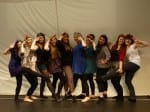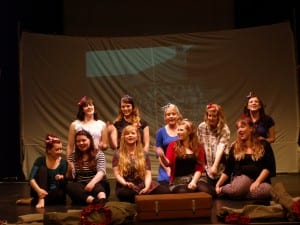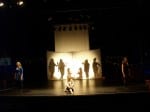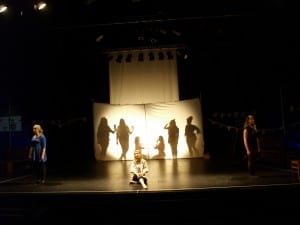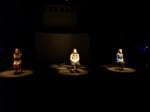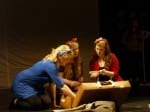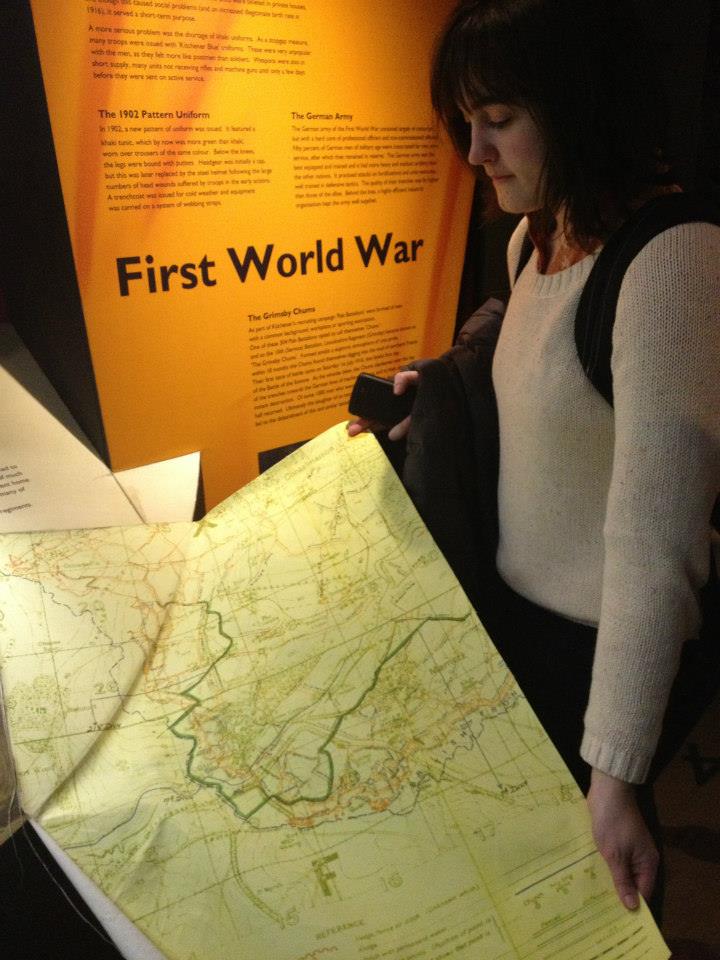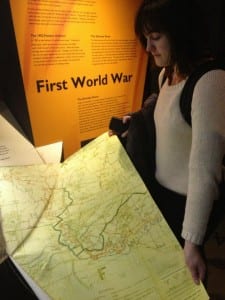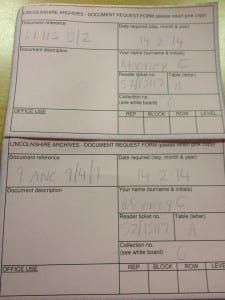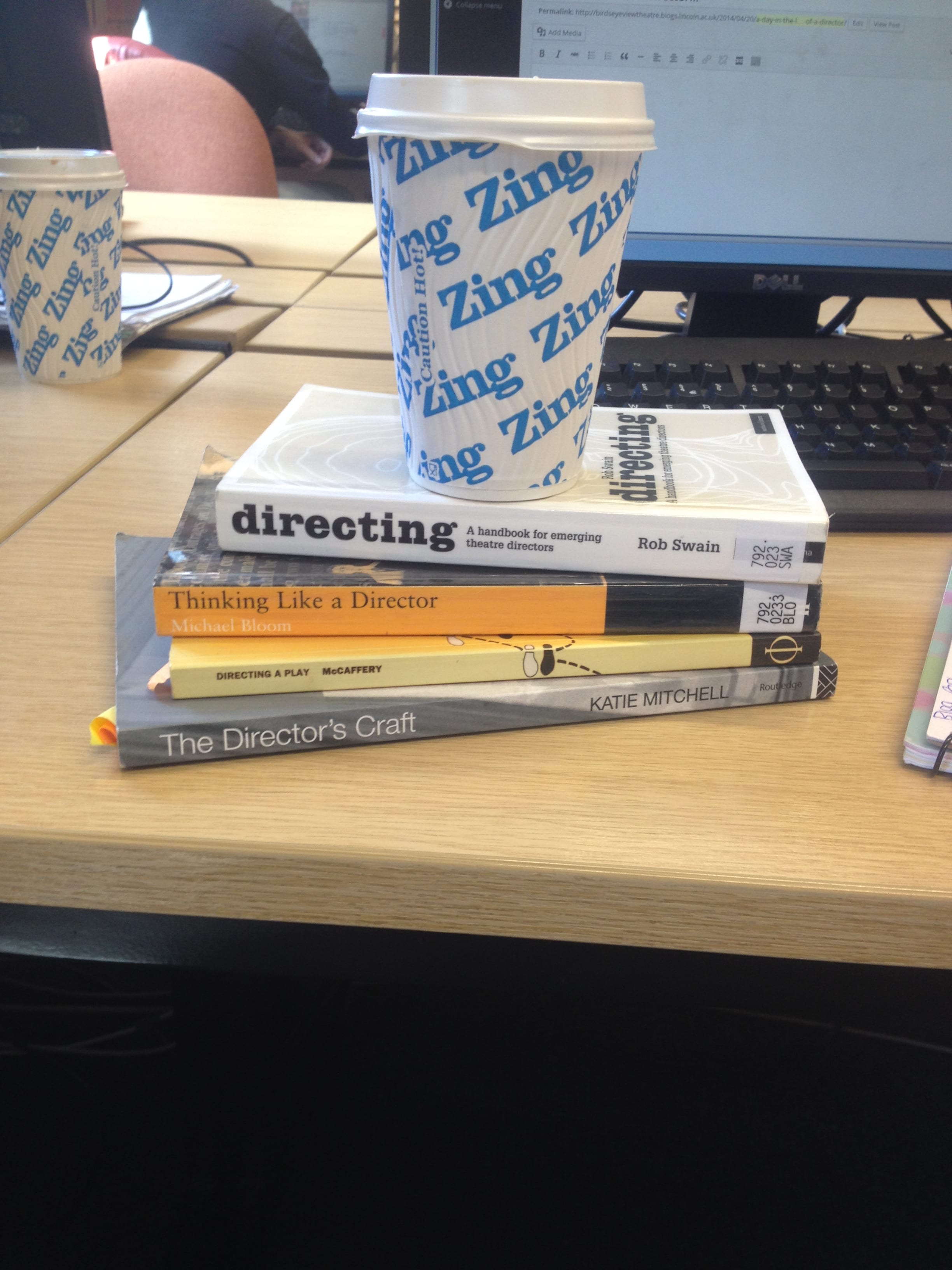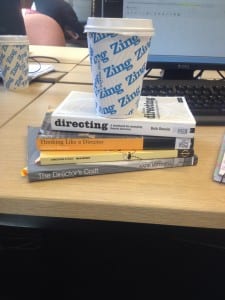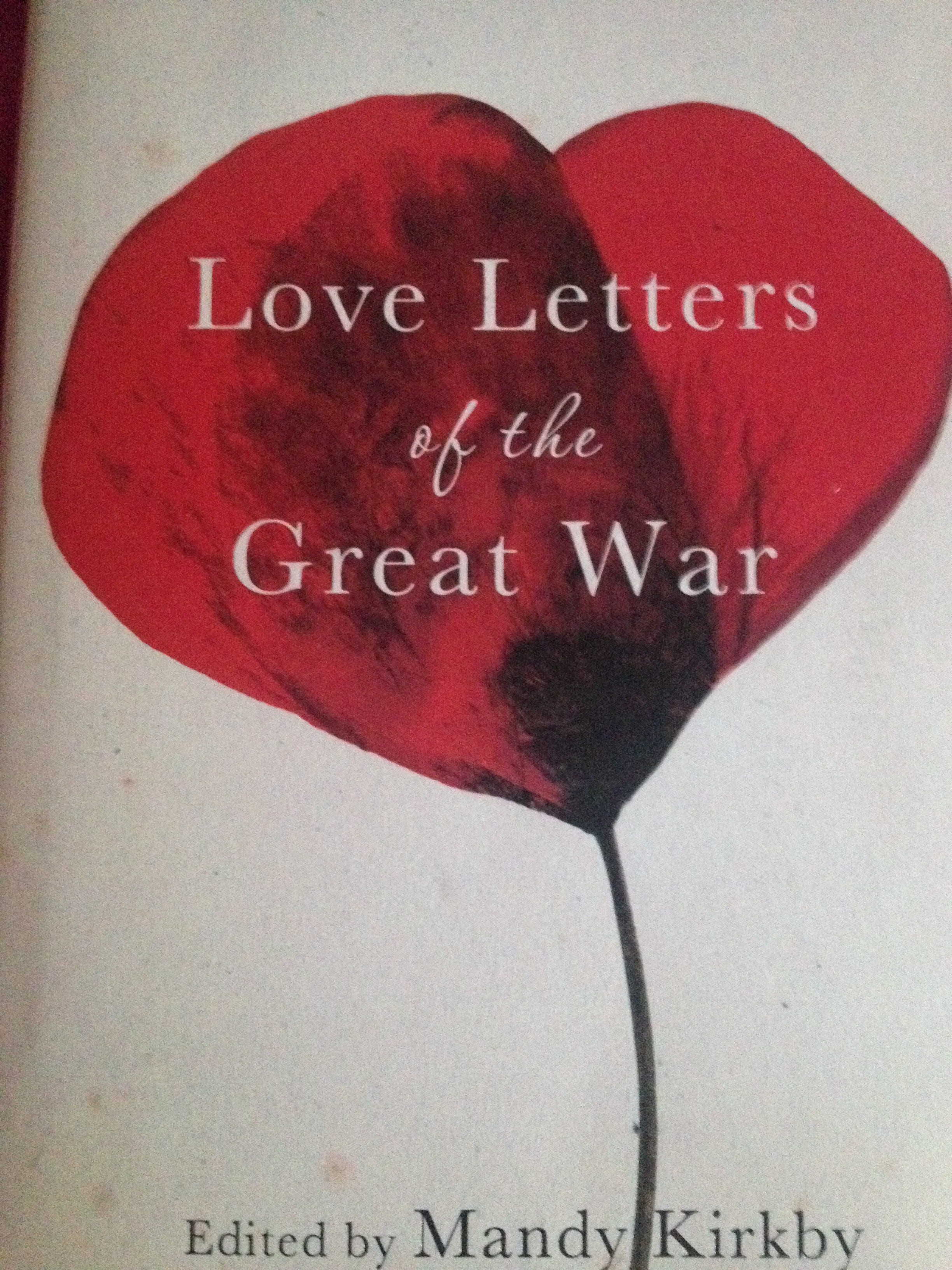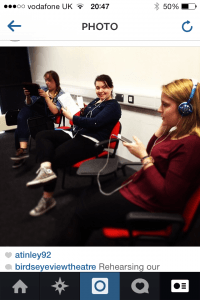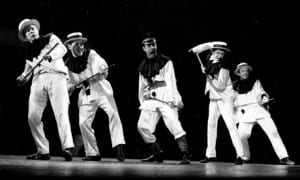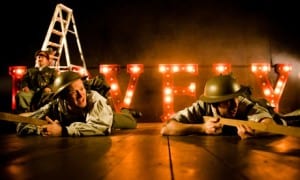Dear Reader,
I am just writing a few lines to sign off my blog and to thank you for following our process. It has not been an easy one at times but showing our work on Friday 23rd of May has made it all worth while. I did not realise quite how emotional it would be to perform ‘Sincerely Yours.’ I think this was due to the wonderful atmosphere which a live audience provided us.
Enclosed is a photograph of the final number from our performance taken by the lovely Frances Pearson during our dress rehearsal. I think I can speak for each of the birds when I say it was thoroughly enjoyable to put everything we had which was ‘homemade’ onto the stage, not only the scripts, but also the bunting and beautiful poetry too.
The cogs have been turning just as they did in the factory scene and perhaps this may not be the last you hear of Birds Eye View Theatre Company. After researching on the Arts Council England website, there is possibility for ‘Sincerely Yours’ to be revived during the centenary of World War One with a little help from funding sources such as the Hertiage and the Centenary project which has been launched this year!
For now however, I can leave university having experienced a new skill of helping to directing a piece of devised verbatim theatre, something that three years ago I would never of dreamed was possible. Most importantly, I know that I will be leaving the University of Lincoln having made 9 new special friendships. Our aim at at Birds Eye View Theatre was to create theatre which was honest, theatre that reflected what people may have experienced during the First World War. Having listened to the stories of Lauren’s, Charlotte’s and Louise’s Grandma’s I believe we have achieved a reflection which is unique and memorable.
I am now off to prepare for the last of this weeks theatre company shows all of which have offered variety and a range of talent at the LPAC. Tonight’s is called, ‘Take Me By The Tongue’ and will be performed by a company called Hand Me Down Theatre Company. Stay tuned from more from the birds! ‘Na-poo, toodle-oo, goodbye-ee’… for now.
Sincerely Yours,
Lauren Kirby
Birds Eye View Theatre
Works Cited:
Arts Council England (2013) [online] Available from http://www.artscouncil.org.uk/ [Accessed 29 May 2014].
Birds Eye View Theatre (2014) How To Make Bunting. [online video] Available from https://www.youtube.com/watch?v=_T4cLsjRjLA [Accessed 29 May 2014].
Heritage Lottery Fund (2014) [online] Available from http://www.hlf.org.uk/HowToApply/whatwefund/FirstWorldWar/Pages/FirstWorldWar.aspx#.U4c4UCitwWk [Accessed 29 May 2014].
Mooney, C. (2014) Dear War Girls. [blog entry] Available from https://birdseyeviewtheatre.blogs.lincoln.ac.uk/2014/05/29/dear-war-girls/ [Accessed 29 May 2014].
Pearson, F (2014) Dress Rehearsal Photography.
Pearson, L. (2014) Creating a backing track. [blog entry] Available from https://birdseyeviewtheatre.blogs.lincoln.ac.uk/2014/04/20/creating-a-backing-track/ [Accessed 29 May 2014].
Pearson, L. (2014) How to make bunting. [blog entry] Available from https://birdseyeviewtheatre.blogs.lincoln.ac.uk/2014/05/26/how-to-make-bunting/ [Accessed 29 May 2014].
